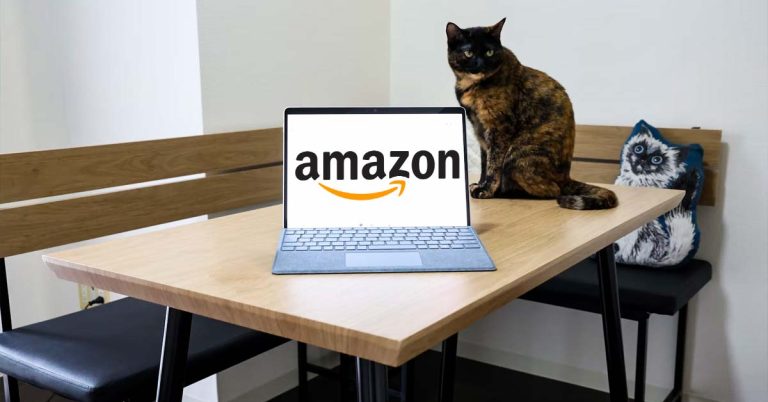This month, author, world traveler and rebel-with-a-cause Chris Guillebeau released The $100 Startup, a book that shakes you up and tells you, hey, if you were ever planning to start a business, the time is NOW.
- Inbox Dollars - Get paid to check your email. $5 bonus just for signing up!
- Survey Junkie - The #1 survey site that doesn't suck. Short surveys, high payouts, simply the best.
- Nielsen - Download their app and get paid $50!
That’s right- forget about getting an MBA or that $50,000 small business loan.
An 80-page business plan? Employees? Nope.
All you need to follow is Chris’ very own business blueprint for success, and The $100 Startup shows you how to make one and fill it out. In fact, some of the blueprint sections are provided right on The 100 Startup website.
Chris went from working for “The Man” to running his own small shipping business. Eventually, he embarked upon his life dream of traveling the world and, in the process, capitalized on his knowledge of flying on the cheap (i.e., Frequent Flyer Master). In his new book, Chris offers loads of useful information for the would-be business entrepreneur, from what benefit(s) to offer customers (notice I didn’t say products) to writing a one-page business plan to not paying for advertising. At every step of the way, several real world business startup examples are provided.
How did Chris become so savvy about startup businesses?
To begin with, as Chris traveled the world with his goal being to visit every country on earth, he naturally encountered all kinds of entrepreneurs. Many of these folks did not have rich relatives or the luxury of a small business loan with which to start their businesses. In many cases, these businesspeople started with very limited funds- sometimes as little as $100 (or fewer). However, they not only successfully started their businesses but even made a good income from them. As Chris kept encountering more and more of these people, an idea occurred to him: Solicit stories from unexpected/accidental entrepreneurs through an online and offline petition. The following 4 out of 6 business criteria had to be met:
- Low startup cost. Ideally, the business required no more than $1,000 in startup capital.
- At least $50,000 in yearly net income. Entrepreneurs had to earn at least $50,000 from their business.
- No special skills required. Skills had to be acquired on-the-job rather than through a degree or an involved apprenticeship.
- Full financial disclosure. All the numbers, including expenses and income for the past two years and next year’s projected income, had to be disclosed.
- No more than 5 employees. To maintain personal freedom, the business had to be run by the owner only or a small team of individuals.
- Passion. The business is based on a “follow-your-passion” model.
The response was overwhelming; over 1,500 qualified respondents were rounded up. A select number of these entrepreneurs provided their stories for the pages of The $100 Startup. Another 25 were referenced in the back of the book. The stories provided by these business owners contained the overreaching theme that passion can turn a profit. And with profit comes the personal freedom to finally go wherever and do whatever you always wanted to do. Thus, these entrepreneurs weren’t stuck in a cubicle or hustling from one business operation to the next with no time for a lunch break. In fact, many of these folks were traveling the world, engaging in worthy causes and charities and raising families- all while running their profitable businesses.
The $100 Startup is divided into three main parts and subjects:
Part I: Unexpected Entrepreneurs. Turn your passions/skills into capital. Package your product/service as a benefit to consumers.
Part II: Taking it to the Streets. Create a one page business plan, killer offer and successful product launch. Obtain free advertising and raise money in unexpected ways.
Part III: Leverage and Next Steps. Increase your prices regularly, franchise and expand your business (or not).
For every part, Chris provides a multitude of real-life examples taken from his entourage of $100 startup entrepreneurs. But the book is not all about case studies. Here are some great business lessons that Chris provides along the way:
Give customers the fish. Customers don’t go into a seafood restaurant expecting to make salmon risotto; they just want to order salmon risotto and eat it. Likewise, when you’re offering a product/service to your customers, don’t make them work for it; make it as simple and turnkey as possible.
Don’t sell a product/service- sell a dream/experience. Victoria’s Secret doesn’t sell women’s underwear; it sells sexiness. Harley-Davidson doesn’t sell motorcycles; it sells freedom. When considering your specific product/service, think in terms of what innate human desire it satisfies rather than what features it offers.
Don’t lowball yourself. You might think that a software package priced at $25 will sell more units than one priced at $75. However, a higher priced item will hold more value with customers as long as its value proposition is made abundantly clear (e.g., use our $99.95 coupon book just once and you’ll save more than the cost of the book).
If it’s not making money, don’t do it. It’s not about how many Facebook likes you have or how many people are following you on Twitter. If, at the end of the day, your marketing plan isn’t bringing in the bucks, then it’s time to scrap it.
Work on your business every day. Set aside time each day to explore new business avenues and/or sales opportunities, communicate with customers, solve chronic issues or review prices. Create something new in your business rather than just maintain it.
The $100 Startup Bottom Line
If you’re not interested in starting a business, then The $100 Startup is probably not for you. However, if you’re looking to create a product/service and sell it for a profit, Chris’ book will certainly be useful. In many ways, Chris’ book reminds me of Tim Ferriss’ The Four-Hour Workweek because it engages you in lifestyle design by having you leave your current job and start a business. Unlike The Four-Hour Workweek, however, Chris’ lifestyle design plan is more realistic. Chris also maintains a blog called The Art of Nonconformity, which proposes new ways to think about life, work and travel.
Mostly, The $100 Startup tips its hat towards a growing population of rebels-with-a-cause who don’t want to spend 40-50 years punching a clock and working to make someone else rich. No, these renegades want to turn their passion into profit and subsequently, that profit into personal freedom. In Chris’ own words, “There’s no rehab program for being addicted to freedom. Once you’ve seen what it’s like on the other side, good luck trying to follow someone else’s rules ever again.”
Win a Copy of The $100 Startup!
We’ll be giving away a free copy of The $100 Startup to one lucky I’ve Tried That reader! All you need to do is Like this Facebook post and leave a comment there! We’ll be picking one random winner on Monday, June 4th to receive a free copy of The $100 Startup!
Best of luck!





Excellent review, and one that makes me want to go straight to Amazon, and buy the book. Someone said (who knows who?) that a little knowledge is a dangerous thing. I couldn’t agree more. The more you know, the more informed decisions it’s possible for you to make. Thanks so much for the fab review, and the interest and inpiration it sparks!
Stacy
Hi,
I am looking into starting my own business & this book would be ideal.
I am a single parent & would love to support my girls doing what I luv & making $ . I am always looking for a great book ! :) :) ;) ;)
Look forward to hear more about this book .
I’m always looking for good book recommendations! So thank you!
Your post was perfect timing! =)